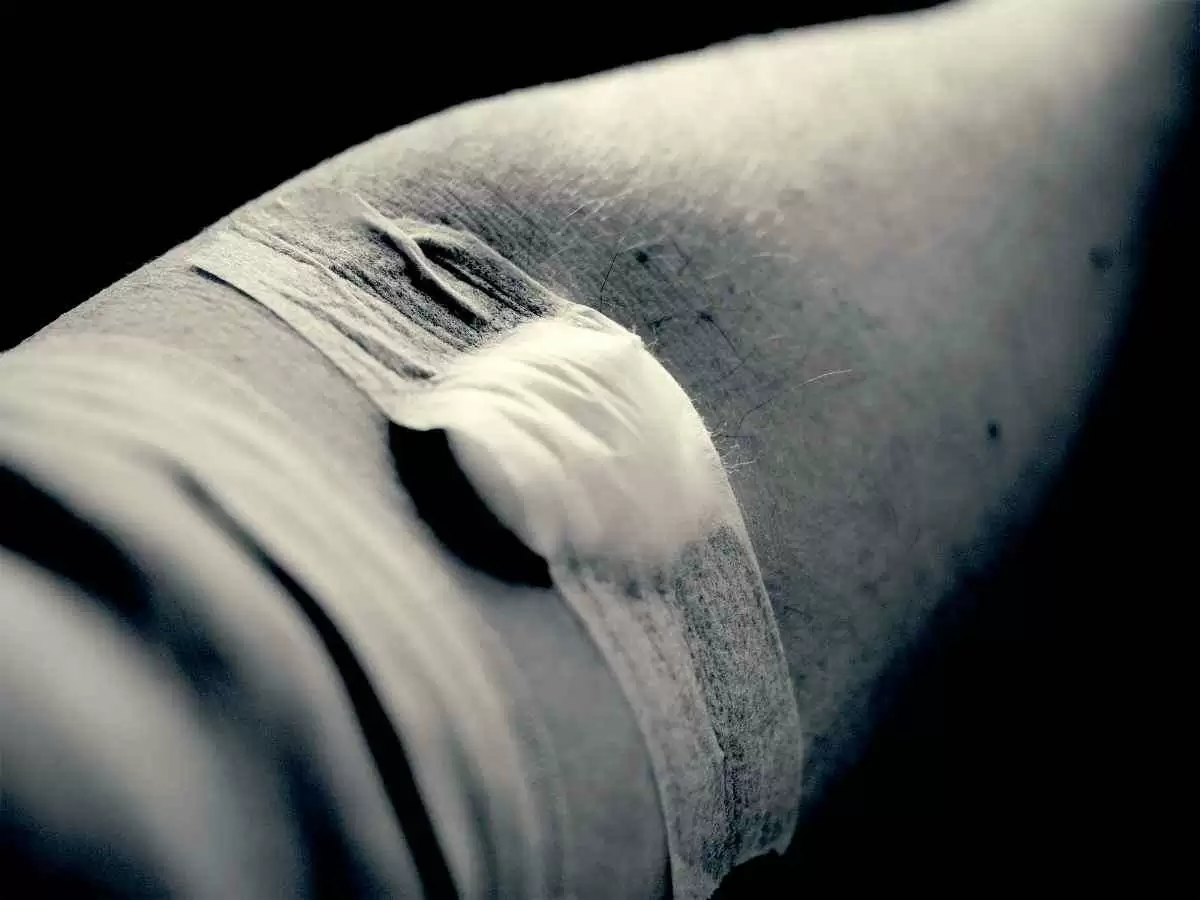
Celiac.com 12/15/2021 - The journey from symptoms to questions, to the search for a proper celiac disease diagnosis can be long, confusing, and frustrating. For many people with celiac disease, the pre-diagnosis phase is the most challenging part of the journey.
A glance at our popular online forum shows that questions about pre-diagnosis, testing and symptoms of celiac disease abound among celiac sufferers.
Celiac.com Sponsor (A12):
To help make the journey a bit easier, we've put together this list of helpful things to know about per-diagnosis and testing for celiac disease.
Celiac Disease Pre-Diagnosis & Testing
Celiac Symptoms
We'll start first with symptoms, because, for most patients, celiac symptoms are often what get the ball rolling toward testing and diagnosis.
Classic celiac-associated gastrointestinal symptoms include malnutrition, diarrhea, abdominal pain, and bloating, weight-loss, or low body weight, among others.
Interestingly, most people with celiac disease show no symptoms, but are diagnosed on the basis of referral for elevated risk factors.
For people who do show symptoms, it is increasingly common to find atypical symptoms, such as being overweight, especially in children. In fact, most children with celiac disease now show atypical symptoms.
An absence of symptoms, or the presence of atypical symptoms can make diagnosing celiac disease even more difficult, as patients often need a referral from a physician, who may have trouble justifying one if she can't point to clear symptoms.
To make matters worse, celiac disease is often confused with numerous other diseases, which can cause delayed diagnosis, or even misdiagnosis.
Celiac Disease Pre-Diagnosis
When people talk about "pre-diagnosis" of celiac disease, they are usually talking about the testing phase. Usually, a person will have symptoms of one sort or another that will lead them to a physician, who will then request testing for celiac disease antibodies.
In some cases, confirmation by biopsy is still the go-to procedure for officially confirming celiac disease, however, in Europe they are now diagnosing celiac disease via a blood test only when it detects a 10-fold increase in IgA antitissue transglutaminase (tTG) antibody levels above the reference range, in combination with EMA positivity, without the need for a duodenal biopsy.
So in many cases, celiac disease can now be diagnosed by blood test alone, without the need for a follow-up biopsy, especially in children, first-degree family relatives, and even in many adults.
Celiac Disease Blood Antibody Testing
Traditionally, doctors will order a test to measure blood levels of anti-transglutaminase antibodies, or tTG2, which are higher in people with celiac disease. tTG2 proteins are among the proteins that trigger the immune reaction the causes inflammation when celiac eat wheat, rye, or barley. Celiacs have hundreds times more tTG proteins than non-celiacs.
Testing begins with a test called Immunoglobulin A (IgA). If the results are normal, then a Tissue transglutaminase, antibody, IgA test is given. A weak positive should lead to the following tests:
- Endomysial antibodies (IgA) and;
- Gliadin (deamidated) antibody, IgA.
If the initial Immunoglobulin A (IgA) test is low, then these two tests should be done:
- Tissue transglutaminase antibodies, IgA and IgG profle.
- Gliadin (deamidated) antibodies evaluation, IgG and IgA.
If the initial Immunoglobulin A (IgA) test is deficient then these two tests should be done:
- Tissue transglutaminase (tTG) antibody, IgG.
- Gliadin (deamidated) antibody, IgG.
In fact, trials show the tTG blood test to be 95 percent sensitive (meaning it detects celiac disease 95 times out of 100), and 95 percent specific (meaning it gives a false positive result just 5 times out of 100).
A Possible Future for Celiac Blood Tests
- One Blood Test Can Now Diagnose Celiac Disease without Biopsy
- New Screening Method Offers Faster and Easier Detection of Celiac Antibodies
FDA Approves New Test for Celiac Disease
A New York startup company, Aesku NY, has received FDA approval for tests to detect celiac disease. Patients who screen positive would require further testing for a specific diagnosis. However, the tests are designed to be cost effective, and efficient, potentially increasing the availability of a reliable screening method for diseases that are best caught and treated early.
Blood Test Results
Normally the results you get will be either negative, weak positive, or positive. Any positive blood test, even if others are negative, could indicate celiac disease. Read more about the Interpretation of Celiac Disease Blood Test Results
Confirmation
In some cases, biopsy is still the go-to procedure for officially confirming celiac disease. This is the case even in Europe when tTG levels are below 10x the reference range for celiac disease. There is some research to indicate that children, on average, may have less villi damage than adults, which is why blood test results are so important.
Genetic Testing
Genetic tests for celiac disease and gluten sensitivity are readily available. Testing can be performed on either blood or mouth swab samples. Tests can be done at home and mailed to the lab for analysis.
A good testing laboratory will provide an accurate prediction of celiac disease risk, and will also provide information about the statistical risk to your children, your likelihood of developing more severe celiac disease, whether one or both of your parents had the risk gene, and for some laboratories, you may determine your risk of gluten sensitivity without celiac disease.
Genetic Test Results
No DQ2 & DQ8 Can Still Mean Non-Celiac Gluten Sensitivity (NCGS)
Data collected by Dr. Ken Fine of Enterolab supports the fact that the absence of DQ2 and DQ8 does not exclude the risk of gluten intolerance or gluten sensitivity, though it now looks likely that one or both of those genetic white blood cell patterns are required for celiac disease to develop.
DQ Type Can Influence Celiac Risk and Severity
Both the DQ type, and number of copies you have, help to determine the risk, and also the potential severity of celiac disease. Two copies of DQ2 carries more risk than one copy of DQ8 or only partial DQ2. Even a single copy of DQ2 alpha subunit ("half DQ2 positive") carries risk for celiac disease, but most of the commonly used laboratories for Celiac genetics do not test for or report the presence of this component of the celiac genes.
The odds of developing celiac disease based on HLA-DQA/DQB genotypes is as follows:
| DQ2+DQ8 |
1:7 (14.3%) |
| DQ2+DQ2 OR DQ2 Homozygous DQB1*02 |
1:10 (10%) |
| DQ8+DQ8 |
1:12 (8.42%) |
| DQ8+DQ8*02 |
1:24 (4.2%) |
| Homozygous DQB1*02 |
1:26 (3.8%) |
| DQ2 only |
1:35 (2.9%) |
| DQ8 only |
1:89 (1.1%) |
| General Population - Genotypes unknown |
1:100 (1%) |
| ½ DQ2*DQB1*02 |
1:210 (0.5%) |
| ½ DQ2*DQA1*05 |
1:842 (0.05%) |
| No HLA-DQA/DQB susceptible alleles |
1:2518 (0.04%) |
Testing for celiac disease should be done using FDA-approved HLA test kits. HLA-DQA/DQB genotyping typically provides detection of DQ2 (DQA1*0501, DQA1*0505, and DQB1*0201/*0202) and DQ8 (DQB1*0302)
For example:
- HLA-DQ2(DQA1*05/DQB1*02) Positive or Negative
- HLA-DQ8(DQA1*03/DQB1*0302) Positive or Negative
Conclusion
For anyone in the pre-diagnosis phase of suspected celiac disease, the keys to effective screening and diagnosis lie in testing and diagnosis, with or without biopsy.
If you have questions about specific issues, be sure to check into our celiac disease forum.










Recommended Comments
Create an account or sign in to comment
You need to be a member in order to leave a comment
Create an account
Sign up for a new account in our community. It's easy!
Register a new accountSign in
Already have an account? Sign in here.
Sign In Now